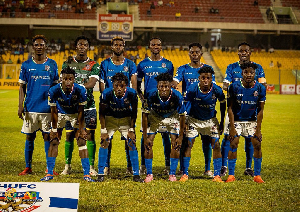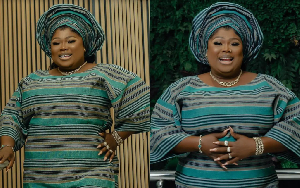Checks by the B&FT indicate that retailers of used refrigerator sets are conspicuously labelling the banned house-hold electronic items and selling them to unsuspecting consumers.
These stickers have the brand names of the fridges, star rating, and an inscription each of 'A', A+, or 'B'. The labelling also informs the pricing of a particular used ‘brand’ of refrigerator.
A used refrigerator dealer told the B&FT that: "As for the stickers on fridges, we get the boys to print for us with the brand names and stars on them. The stickers are not given to us by a government institution, and even if you need a thousand copies today, the guys can print them for you".
In the year 2013, government banned the importation of second-hand refrigerators into the country -- largely to reduce energy consumption, the harm these appliances cause to the environment, and limit the number of household fires attributed to faulty refrigerators.
All newly imported refrigerators were required to bear energy efficient labels. These labels are supposed to tell how much energy a refrigerator or freezer uses per year, and gives a star rating that allows one to compare its efficiency to other refrigerators of the same size and type. The more stars, the more efficient.
The measure was apt, as household consumption continues to drive the growing demand for electricity -- which is growing at an estimated 10 percent per annum.
Demand and consumption hit 1,664 megawatts in 2011 and grew to about 1,800 megawatts in 2015. However, the bulk of this demand is for domestic or household consumption.
Around 62 percent is consumed domestically -- leaving very little for commercial and industrial use. Commercial consumption, which describes power consumed by small or micro businesses, accounts for 18 percent. Industrial or large-scale consumption accounts for 20 percent of the total.
Used refrigerators, air-conditioners, and CFL bulbs are some of the items that consume a lot of energy. The ban on used refrigerators and introduction of the energy-saving bulbs has helped saved millions.
Amponsah Bediako, the Head of Communications at the Ghana Standards Authority, in an interview with the B&FT said it is unlawful for used fridges -- whether with energy rated label or not -- to be on the market.
"Whether the second-hand fridges are star rated or not, they are against the law and should not be allowed to enter or be sold. So those second-hand fridge dealers who are rating their fridges are flouting the law.
"Even when imported brand-new fridges are without star ratings they would still not be good for the environment, and hence unauthorised for entry into the market," he added.
He therefore entreated the Energy Commission, whose duty it is for the regulation and utilisation of energy resources, to work in this direction to help protect the environment and guarantee consumers’ safety.
Business News of Thursday, 15 October 2015
Source: B&FT













